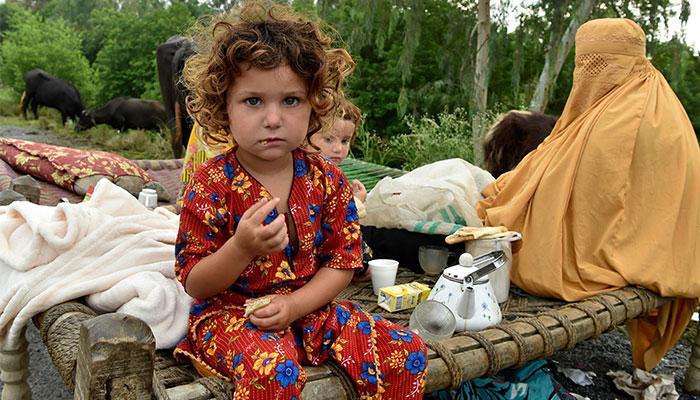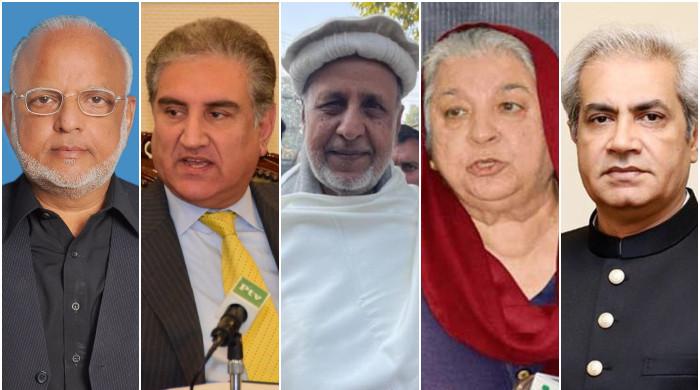Over 3 million children face health risks in flood-ravaged Pakistan: UNICEF
UNICEF says it is working to ensure support for affected children, appeals for $37 million to support govt-led response for flood relief
September 01, 2022

- UNICEF says when disasters hit, children are always among the most vulnerable.
- Says it is working to ensure support for affected children.
- Appeals for $37 million to support govt-led response for flood relief.
Amid multiple crises already looming in the wake of devastating floods in the country, United Nations International Children's Education Funds (UNICEF) has warned that more than three million children are facing health risks.
"Torrential monsoon rains have triggered the most severe flooding in Pakistan’s recent history, washing away villages and leaving more than three million children in need of humanitarian assistance and at increased risk of waterborne diseases, drowning and malnutrition," a report issued by the global body for children's rights said.
It said that at least 33 million people, of which approximately 16 million are children, have been affected by this year’s heavy monsoon rains in Pakistan, bringing devastating rains, floods and landslides.
As per the report, over 350 children have lost their lives and 1,600 others were injured. Over 287,000 houses have been fully, and 662,000 partially, destroyed. Some major rivers have breached their banks and dams overflowed, destroying homes, farms and critical infrastructure including roads, bridges, schools, hospitals and public health facilities.
Threat of disease outbreak
Apart from the casualties, the people in flood-hit areas are resorting to open defecation and drinking unsafe water as 30% of water systems are estimated to have been damaged, further increasing the risk of disease outbreaks.
UNICEF underscored that a potential outbreak of diarrhoea and other water-borne diseases, respiratory infection, and skin diseases poses a huge risk to children, 40% of whom already suffered from stunting, caused by chronic undernutrition before the floods hit.
Devastated education infrastructure
It also drew attention towards the damage incurred to the education infrastructure which further jeopardised the children's access to education. It said that 17,566 schools have reportedly been damaged.
“When disasters hit, children are always among the most vulnerable,” said Abdullah Fadil, UNICEF Representative in Pakistan.
With the floods already taken a devastating toll on children and families, he feared that situation could further aggravate.
In order to ensure the safety of children, UNICEF is working to respond to the urgent needs of children and families in affected areas.
"UNICEF is working closely with the Government and other partners to ensure that children affected get the critical support they need as soon as possible," Fadil said.
The children's right body also appealed for funds worth $37 million to support the government-led response for the flood relief.
"[...] aiming to reach children and families in the coming months with support including lifesaving medical equipment, essential medicines, vaccines and safe delivery kits, safe drinking water and sanitation supplies, nutrition supplies and temporary learning centres and learning kits," the statement read.











